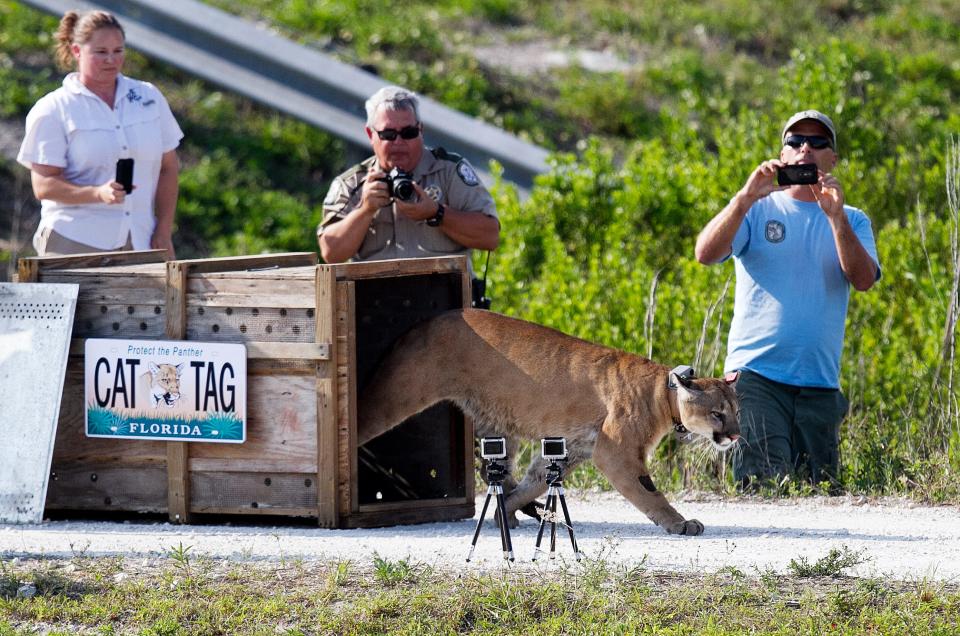Panther road kills are up this year. Why that is a good indicator for the state animal
Maybe 2023 was a hiccup for Florida panthers.
Road kills were at a worrisome low last year, but this year the number of road kills appears to be on pace with an average year.
It's never good when a panther is hit and killed by a vehicle, but biologists have long said that more road kills can be an indicator of a strong population. There must be more cats in south Florida now than years ago as there are more road kills, the theory goes.
Thirteen Florida panthers were hit and killed by vehicles through May 4, according to Florida Fish and Wildlife Conservation Commission, or FWC, records.

By comparison, four panthers had been hit by cars through the same period in 2023, and the entire year produced 13 road kills. Twenty-six panthers were hit and killed by cars in 2022, according to FWC records, while 21 panthers were killed on Florida roads in 2021.
"We prefer to look at long-term trends when it comes to these (road kill) data," said FWC panther biologist Dave Onorato. "We’ll have a better sense of (whether) last year was an anomaly or not by the end of this year (and) when compared to previous years."
More: Florida asks feds to let more than 1,000 permits slide after judge rules process illegal
The low number last year prompted concerns among panther support groups as some feared that fewer road kills might mean there are fewer panthers alive to be hit.
If this year's rate continues, the total number of deaths will be just shy of 30, which is about average for the past six or eight years, according to FWC records.
Most panther deaths this year have occurred in Collier County
Six of this year's panthers were hit and killed in Collier County, with four deaths recorded in Hendry County, two in Glades and one in Broward.
The population is threatened by habitat loss to development and neurological disease that sprang up in panthers and bobcats in 2017.
More: Will sargassum wreak havoc on SWFL beaches this summer?
Florida panthers were nearly wiped out of the Sunshine State, and by the 1990s there were only a few dozen cats roaming the historic Everglades.
Texas cougars were introduced to Florida to increase genetic diversity
But in 1997 the FWC and the U.S. Fish and Wildlife Service introduced seven female Texas cougars into the Florida population to increase genetic diversity.
Historically, Florida panther and Texas cougars exchanged genetics as their ranges connected in area like Louisiana, Alabama and Mississippi.
So adding the Texas females did not change the Florida panther, although it is considered an endangered sub-population of the larger cougar family.
Where often the deaths are attributed to starvation, intraspecific aggression (panthers killing panthers), and unknown causes, vehicle deaths are the only listed cause of death this year, according to FWC records.
Panther, bobcat neurological disease still a concern
A deadly neurological disease sprang up in panthers and bobcats in 2017, and scientists are still trying to understand the cause.
Some panthers and bobcats have suffered and died from feline leukomyelopathy, of FLM, in the past several years, and cats here are still being documented with the disease.
FWC biologists have tested for a litany of causes but have found no reason for the disease, which causes the cats to stagger and drag their hind quarters.
"FLM is still a concern," Onorato said. "We continue to document cases but there has not been a noticeable uptick in FLM recently."
This article originally appeared on Fort Myers News-Press: State animal dying at typical rate this year from vehicle collisions

